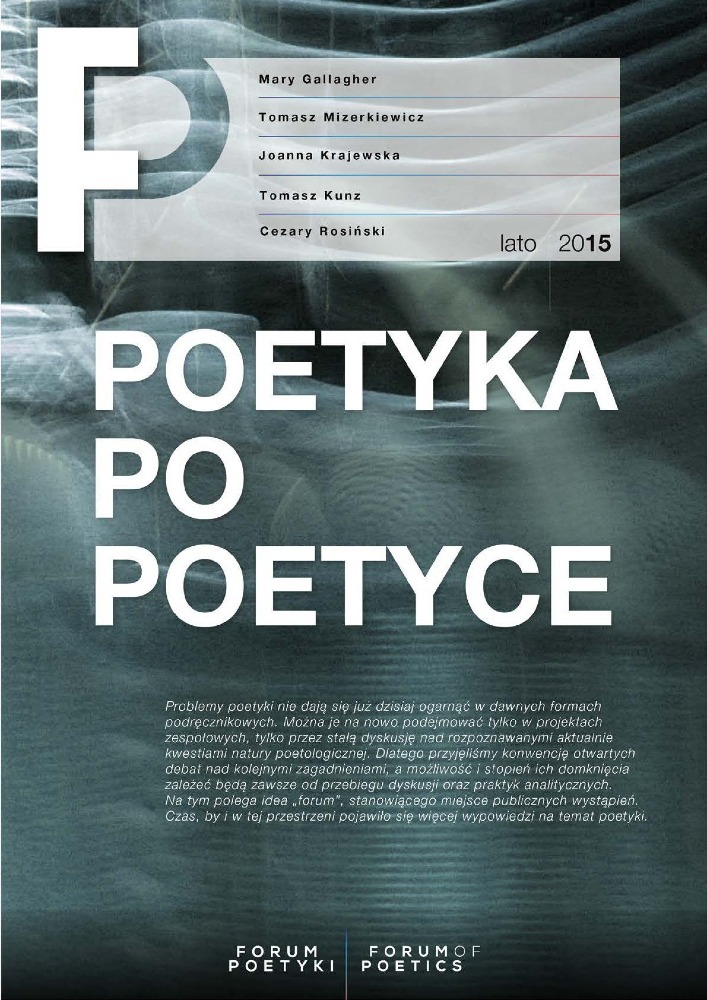Abstract
Franciszek Ksawery Dmochowski’s The Art of Rhyming presents a summary of the poetic developments of its era. The author inscribed his work within the tradition, dating to antiquity, of the genre of the ars poetica, and referred to classical poetics while presenting a complete picture of Polish literature and its reigning tendencies. The poem, divided into four cantos, not only discusses general rules of poetic art, but also touches on issues of translation and literary criticism, indicates models of various genres and analyses the most outstanding Polish efforts in each of them. The first canto presents the basic rules of prosody and contains a survey of the achievements of Polish literature. The second and third cantos of Dmochowski’s poem present a survey of genre conventions. Particular attention is given to the song, the ode, the epigram, the satire, and the heroic epic poem. The article shows the modern nature of Dmochowski’s reflections, whose approach to and views on literature took into account its newest tendencies.
References
Homerus, Kazimiera Jeżewska, i Jerzy Łanowski. Iliada. Warszawa: Prószyński i S-ka, 2005.
Klimowicz, M. Oświecenie. Zredagowane przez Teresa Kostkiewiczowa i Franciszek Ksawery Dmochowski. T. 2. Pisarze polskiego oświecenia. Warszawa: PWN, 1998.
Kostkiewiczowa, Teresa, Zbigniew Goliński, i Danuta Trzpil, red. Oświeceni o literaturze: wypowiedzi pisarzy polskich 1740-1800. T. 2. Warszawa: Wydawn. nauk. PWN, 1993.
Libera, Zdzisław. Rozważania o wieku tolerancji, rozumu i gustu: szkice o XVIII stuleciu. Warszawa: Państwowy Instytut Wydawniczy, 1994.
Pietraszko, Stanisław. Doktryna literacka polskiego klasycyzmu. Wrocław: Zakład narodowy imienia Ossolińskich, 1966.
Pokrzywniak, Józef Tomasz. „Wstęp”. W Satyry, zredagowane przez Ignacy Krasicki. Wrocław: Zakład narodowy im. Ossolińskich, 1988
License
Authors of articles are responsible for securing the rights to other publications (texts, tables, drawings and other illustrations) quoted or reproduced in their texts.
